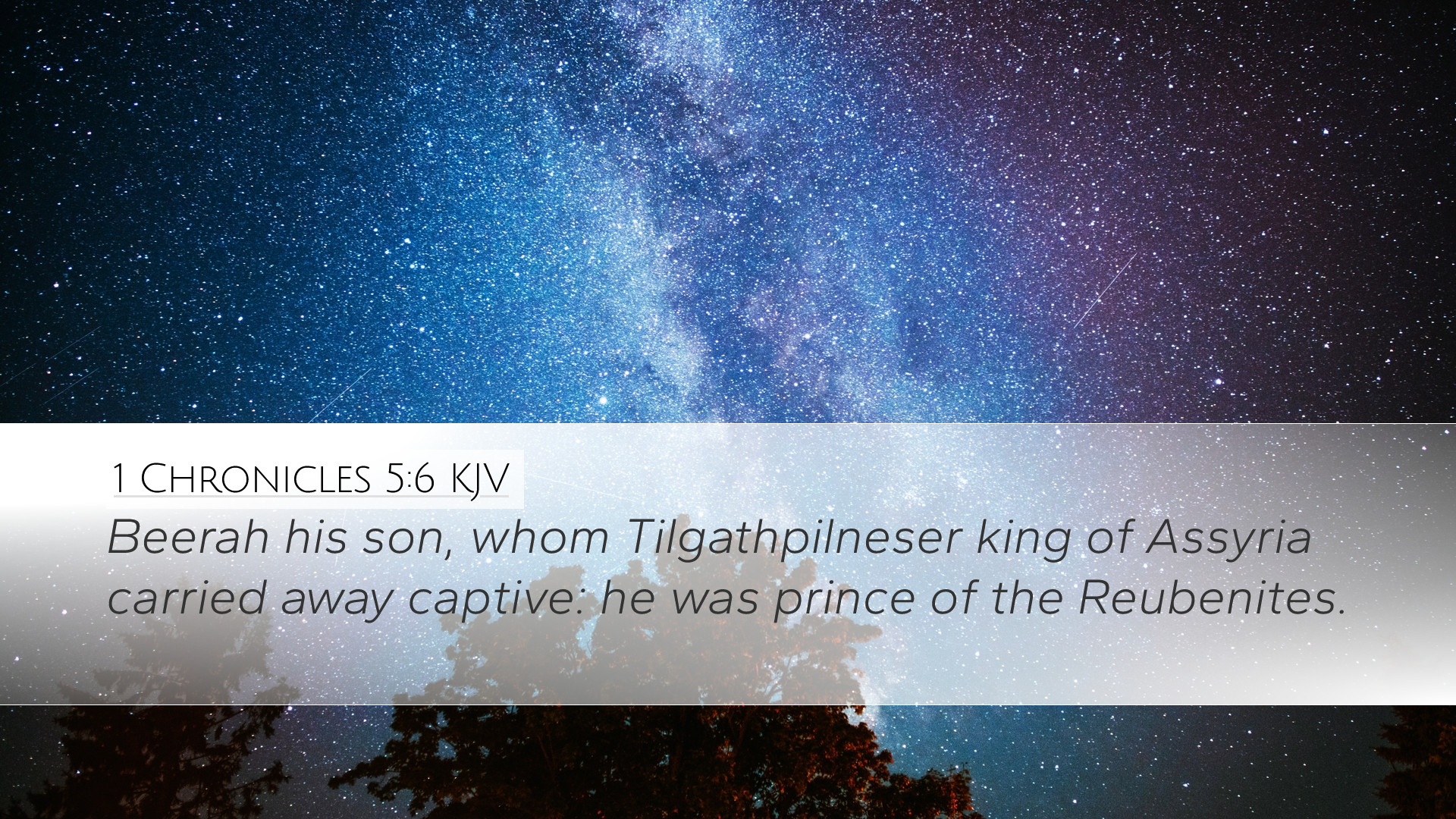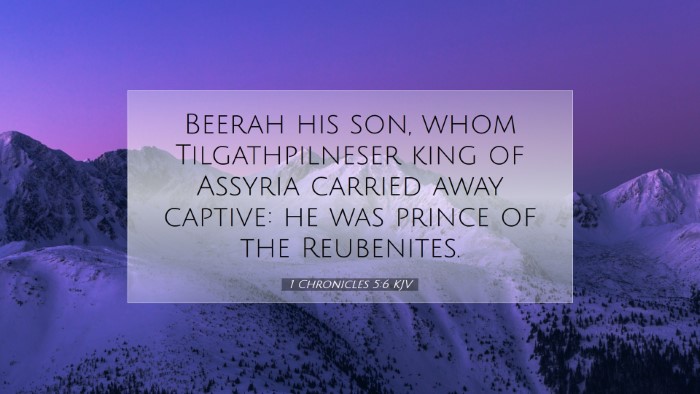Commentary on 1 Chronicles 5:6
Verse: "Bela the son of Azaz, the son of Shema, the son of Joel, who dwelt in Aroer, even unto Nebo and Baalmeon." (1 Chronicles 5:6)
Context and Overview
The Book of 1 Chronicles presents a genealogical narrative that emphasizes the Levitical and tribal heritage of Israel. In this passage, we find a genealogy that traces the lineage of the tribe of Reuben. Understanding this context is crucial for interpreting the significance of each name and place mentioned in this verse.
Historical Background
- Tribal Significance: The Reubenites were the firstborn of Israel, yet they lost their birthright due to their ambivalence towards their father Jacob's legacy. This loss of the birthright informs our understanding of the tribe's standing and identity throughout the biblical history.
- Geographical Locations: Aroer, Nebo, and Baalmeon are significant geographic markers that provide insight into the Reubenites' habitation and territorial claims.
Commentary Insights
Matthew Henry
Matthew Henry emphasizes the importance of genealogies in Scripture, pointing out that they serve not only to trace physical lineage but also to affirm the spiritual legacy of the people of God. He observes that the mention of Bela is significant; Bela was a notable figure among the Reubenites, demonstrating leadership and a priestly role assigned to him and his descendants.
Albert Barnes
Albert Barnes elaborates on the geography presented in the verse. He mentions that Aroer was a recognized city that served as a border marker for Reuben, indicating their territorial limits. Barnes sees this as a reminder of God's providence in assigning lands to the tribes of Israel, reinforcing their identity and the fulfillment of God's promises to them.
Adam Clarke
Adam Clarke explores the implications of the names presented, particularly in the context of their meanings and roles in society. He points out that the lineage is not merely historical; it represents the covenant relationship between God and the Reubenites, highlighting their call to faithfulness despite their failures. Clarke encourages readers to reflect on the significance of their own spiritual heritage and identity as part of the body of Christ.
Theological Implications
This verse underscores several theological themes:
- The Sovereignty of God: The listing of names and their geographical settlements highlights God’s sovereignty over history and His planning in the establishment of Israel.
- Identity in Christ: Just as the genealogies established the identity of the Israelites, believers today are called to recognize their identity in Christ, as heirs of a spiritual lineage that transcends earthly ties.
Application for Today
For pastors and theologians, this verse serves as a critical reminder of the importance of heritage and the narratives that shape our understanding of God’s design. It compels students and scholars to delve deeper into genealogical studies in Scripture, recognizing that each name carries a story that is integral to the unfolding salvation history.


